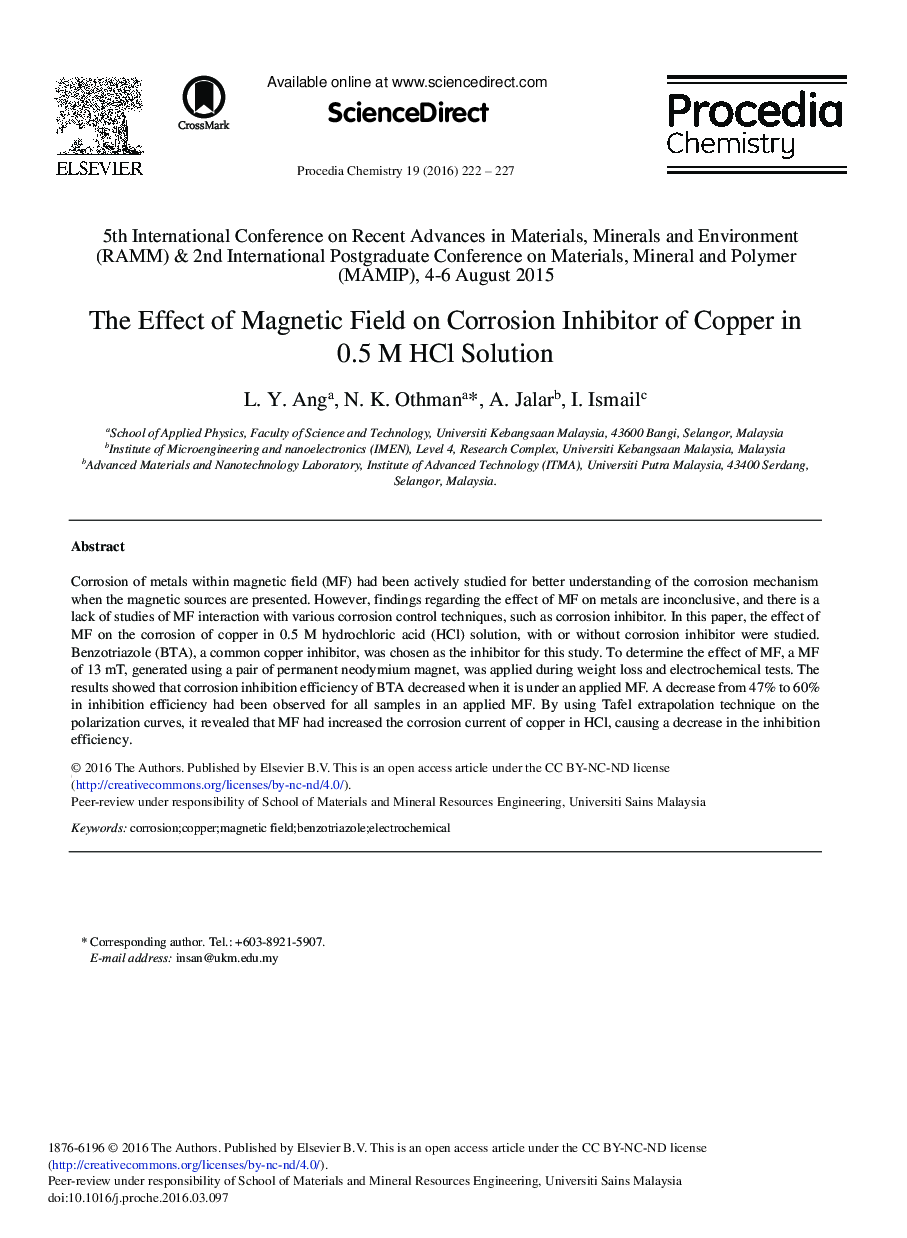| Article ID | Journal | Published Year | Pages | File Type |
|---|---|---|---|---|
| 239817 | Procedia Chemistry | 2016 | 6 Pages |
Corrosion of metals within magnetic field (MF) had been actively studied for better understanding of the corrosion mechanism when the magnetic sources are presented. However, findings regarding the effect of MF on metals are inconclusive, and there is a lack of studies of MF interaction with various corrosion control techniques, such as corrosion inhibitor. In this paper, the effect of MF on the corrosion of copper in 0.5 M hydrochloric acid (HCl) solution, with or without corrosion inhibitor were studied. Benzotriazole (BTA), a common copper inhibitor, was chosen as the inhibitor for this study. To determine the effect of MF, a MF of 13 mT, generated using a pair of permanent neodymium magnet, was applied during weight loss and electrochemical tests. The results showed that corrosion inhibition efficiency of BTA decreased when it is under an applied MF. A decrease from 47% to 60% in inhibition efficiency had been observed for all samples in an applied MF. By using Tafel extrapolation technique on the polarization curves, it revealed that MF had increased the corrosion current of copper in HCl, causing a decrease in the inhibition efficiency.
